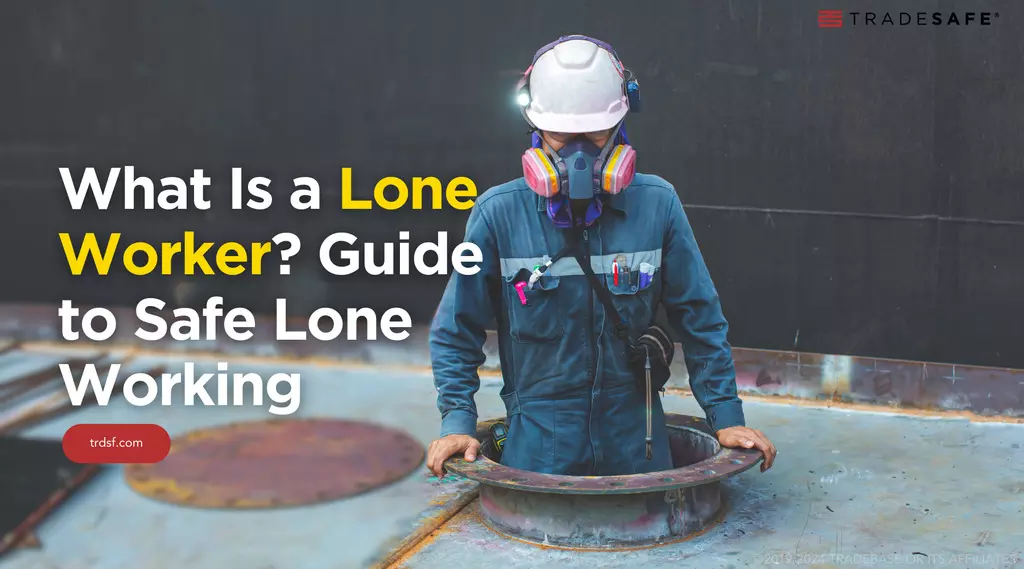Your Legal Duties and the Rise of Lone Worker Solutions in the UK
How UK Law and Modern Tech Are Shaping Safer Workplaces for Those on Their Own
image for illustrative purpose

In the UK, more people than ever before are working alone—delivery drivers, social workers, cleaners, engineers, and even real estate agents.
These workers do their jobs without direct supervision or coworkers nearby. While working solo may seem normal for many, it comes with risks.
That’s why lone worker solutions have become a growing trend—and in many cases, a legal necessity.
What Is a Lone Worker?
A lone worker is someone who works by themselves without close or direct supervision. They may be in a remote location, at night, or in a public place. Some work from home.
Others visit multiple sites throughout the day. Even employees working in shops or petrol stations with no coworkers nearby can count as lone workers.
These jobs are common in industries like:
• Healthcare
• Construction
• Retail
• Security
• Delivery and logistics
• Real estate
Lone workers face unique risks. If something goes wrong—like a fall, injury, medical emergency, or even aggression from the public—they may not be able to get help quickly. This is where legal duties come in.
What Does the Law Say?
UK health and safety laws make it clear: every employer has a duty to protect their workers. That includes people working alone.
Under the Health and Safety at Work Act 1974, employers must:
• Ensure the health, safety, and welfare of employees.
• Assess risks involved in lone working.
• Provide proper training and equipment.
• Have emergency procedures in place.
There’s also the Management of Health and Safety at Work Regulations 1999, which requires employers to do a risk assessment—especially when workers are alone and exposed to possible danger.
Simply put: if someone works alone and something bad happens, the employer may be held responsible if safety wasn't taken seriously.
Why Are Lone Worker Solutions Growing?
Companies are turning to technology to help meet their legal duties. Lone worker solutions are tools or systems that help protect solo workers. These can include:
• Wearable panic buttons
• Apps that track location and check-in status
• Two-way communication devices
• Man-down alarms that alert if someone falls
• GPS-based monitoring tools
These solutions do more than just track people—they give peace of mind to workers and their employers. With one click or automatic alert, help can be sent right away if something goes wrong.
Real Risks, Real Stories
Consider a support worker visiting a client’s home. If the client becomes aggressive and the worker has no way to call for help, they could be in danger. With a lone worker device, they can send an alert that brings help fast.
Or think about a delivery driver working late. If their van breaks down in a remote area and their phone dies, how will they reach anyone? Lone worker systems often work with backup communication or alert someone when check-ins are missed.
The risks are not just about crime or accidents. Medical emergencies like fainting, heart attacks, or seizures are real possibilities too. When someone is alone, every second counts.
What Should Employers Do?
If you hire or manage people who sometimes work alone, here's what you should be doing:
1. Identify who your lone workers are.
You might not even realize some employees qualify.
2. Do a full risk assessment.
Look at where they work, when they work, and what hazards they face.
3. Set up procedures and training.
Make sure your team knows how to stay safe and what to do in an emergency.
4. Use the right technology.
Lone worker tools can help track safety and improve your response time.
5. Review regularly.
Risks can change. So should your safety plan.
It's Not Just a Good Idea—It's a Duty
Keeping lone workers safe isn’t just the smart thing to do—it’s the law. Employers who ignore this risk not only put lives in danger but also open themselves up to fines, lawsuits, or even criminal charges.
Workers also need to know their rights. If you’re working alone and don’t feel protected, speak up. Your safety should never be a guessing game.

